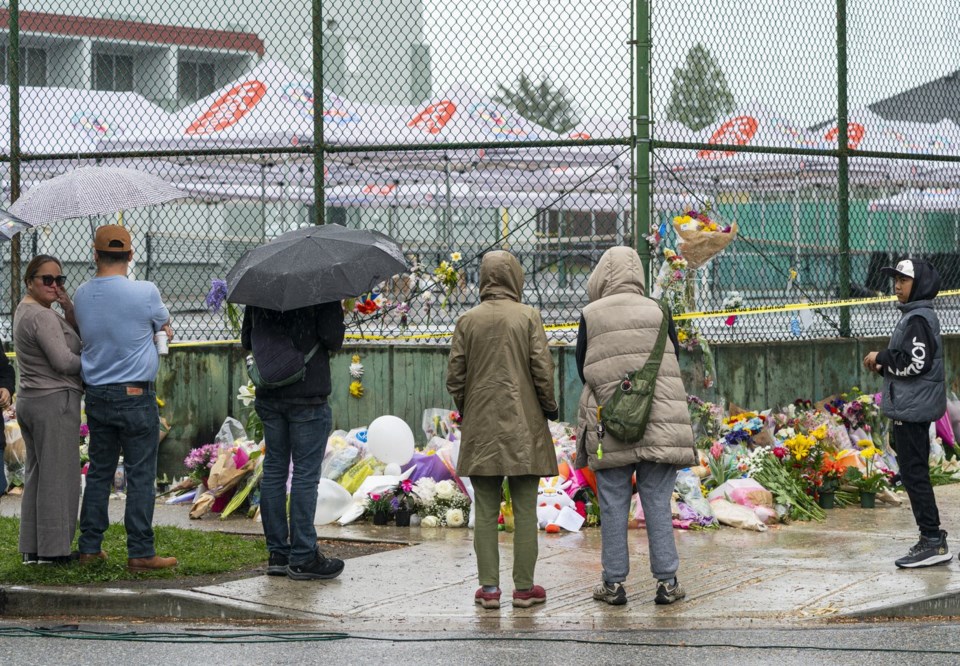VANCOUVER — A British Columbia advocate says people with mental illness and those who work with them are afraid of the consequences that could come in reaction to the festival tragedy that killed 11 people in Vancouver on Saturday.
Health officials have said the suspect, Adam Kai-Ji Lo, was under the care of a mental health team and Vancouver Mayor Ken Sim said Lo was on "extended leave," a term used to refer to people under involuntary care, at the time of the attack.
Jonny Morris, the CEO of the Canadian Mental Health Association’s B.C. division, said there is "real fear" there could be reactionary moves that may not make the kind of difference people are seeking in response to the attack on the Vancouver's Lapu Lapu festival.
But these could add to stigma around mental health, he said.
"I'm picking up fears that … because of the way it's being framed, without the analysis of the system beyond the individual, will stigma increase?" he said.
"We've seen that after incidents like this. Will discrimination increase? Will employers say, 'Oh, you have a mental illness. Oh, you might be violent. I'm not going to hire you.' And what about landlords and people with mental illness? 'Oh, we don't want you living in our building because of your mental illness.'
"Because that's how stigma works. That's how discrimination works."
Police have said Lo had "a significant history of interactions with police and health-care professionals related to mental health." He is facing eight second-degree murder charges.
Premier David Eby has promised a review of the province's Mental Health Act and said there will be "full public inquiry" if the criminal case does not lead to answers.
Sim said Wednesday that the case pointed to a "deeper failure in the mental health system" and that people are "sick and tired" of inquiries into a recurring pattern of people in a mental health crisis becoming involved in violence.
Morris said any examination of the situation should be a systemic review of all factors that contributed and how the system can be improved.
He said the way the tragedy is talked about publicly shapes how safe people feel about accessing help if they are in a mental health crisis.
"Stigma, and the ways we talk about mental illness in these moments really can contribute to feeling safe and people feeling more likely to reach out for help, or it can push people apart and help people feel less safe reaching out for help," he said.
He said it's important to let the legal process unfold to fully understand what role mental illness and the impacts of symptoms played in the situation.
"The ways in which we describe mental illness, people with mental illness, has very real impact upon the millions of people across this country who live with mental illness and who will not go on to commit a violent crime, and we just need to think that through carefully before reaching for solutions."
On Wednesday, Eby asked people to "reserve judgment" on what went wrong in this case, after being asked about the suspect's mental health-care situation.
"The vast majority of people who live with mental health issues are no threat to anybody in the public," Eby said.
This report by The Canadian Press was first published May 1, 2025.
Ashley Joannou, The Canadian Press




